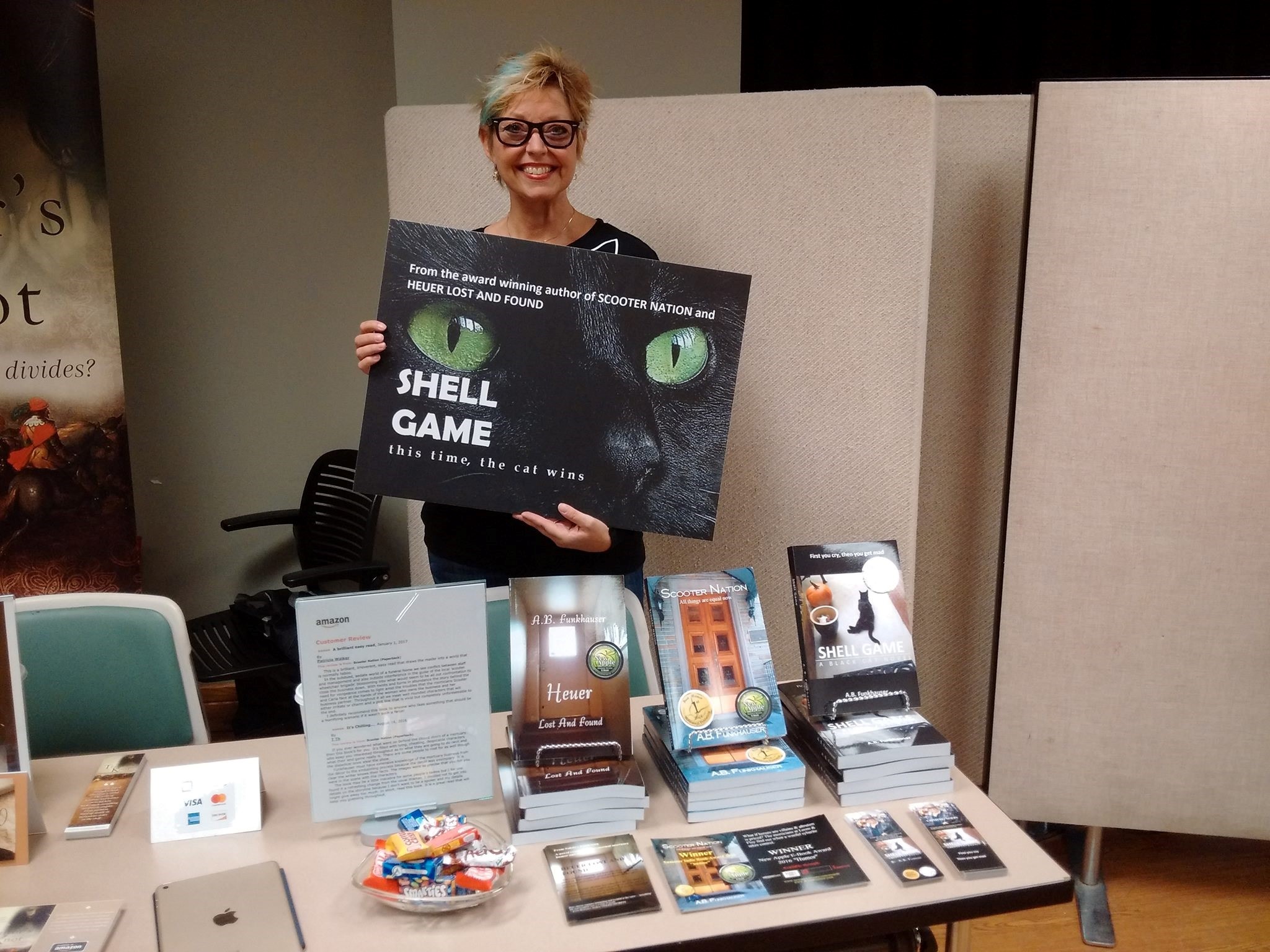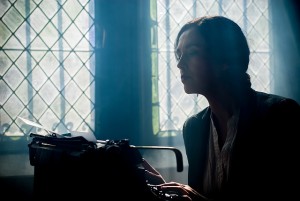Ruth E. Walker
Have you ever picked up a book, started to read it and stopped? Maybe you put it down, never to pick it up again. Perhaps the subject matter didn’t fit your taste. Maybe the author’s style didn’t speak to you.
 Or just maybe you asked yourself, who edited this?
Or just maybe you asked yourself, who edited this?
That’s a question that should not be on any reader’s mind. Editors are behind-the-scenes workers. They ask the author questions, offer guidance, note big issues of plot and character, and point out logic, syntax, grammar and spelling errors before that manuscript heads to the printer. They appreciate a quiet acknowledgement in the back.
When something’s missing
 A book that hasn’t been edited often shows some of the following: Spelling errors. Logic glitches. Flat characters. Vague references. Passive text. No forward progression. Lack of plot arc. Unnecessary repetition. Stilted dialogue. Lack of action. Lack of transitions…
A book that hasn’t been edited often shows some of the following: Spelling errors. Logic glitches. Flat characters. Vague references. Passive text. No forward progression. Lack of plot arc. Unnecessary repetition. Stilted dialogue. Lack of action. Lack of transitions…
Any combination—indeed, even if it’s just one of these errors repeated—will kick readers out of the story. If it’s just an error here or there, the kick out is temporary. But readers are not too forgiving and when those editing misses pile up, a reader will abandon the book.
 I’ve seen issues even with a traditionally published book, but most often, it’s the self-published books that show a need for editing. Those unsold books end up in boxes in a writer’s basement, or dumped on bargain sales tables. I wish more writers would factor in the cost of editing when they budget to self-publish. So why don’t they?
I’ve seen issues even with a traditionally published book, but most often, it’s the self-published books that show a need for editing. Those unsold books end up in boxes in a writer’s basement, or dumped on bargain sales tables. I wish more writers would factor in the cost of editing when they budget to self-publish. So why don’t they?
Five reasons to not hire an editor:
- I have family and dear friends who can help me edit my book.
- That’s great, except none of them are professional editors but “they all read a lot and they love me.” And that means they might notice some things that need work. Or not. Hopefully, they capture everything that needs editing and they agree on everything that needs work.
- My printing company provided editing services—they proofread it all.
- Be careful. Proofreading is not editing; it’s a focus on the final manuscript just before printing. It finds errors with spelling, grammar, syntax, word usage and consistency. Proofreading does not consider pacing, character development, thematic issues and figurative language, plot arcs, subplot(s), effective description, setting clarity, etc. Proofreading will not suggest that your book begins in the middle of chapter 4 and all that comes before is either unnecessary or better placed elsewhere. Proofreading will not ask you questions that help you discover that your main character has almost no motivation. Proofreading is necessary, but only one piece of the editing process.
- I love my book and I don’t want to change anything.
- You are one in a million and should have no trouble making it to all the best-seller lists.
- Having an editor scares me. How do they know what I’m trying to accomplish? What if they tell me my book is awful?
- No editor should scare a writer; if so, that editor is not for you. You’re not looking for a dear friend (see #1) to help you polish your manuscript. You need a professional with whom you feel comfortable enough to trust with your work. So shop around. Ask others about editors they’ve hired to work with. Are there testimonials on the website? Get quotes. Ask questions: Have you edited science fiction before? Have you worked on non-fiction? Do you offer consultation to discuss suggested edits? Do I have to pay in advance? Can I spread out my payments? Ask the questions that are important to you and see what the answers are.
- I can’t afford an editor
- Hire a good editor, and you hire a professional who is objective about your book. Someone who wants you to have good sales. Someone who is motivated to help your book be the best it can be. You’ve invested untold hours in crafting your story. You’re already paying to have it bound with an attractive cover, printed and delivered to your door. You will be spending money and a huge investment of time to promote the book. In an already crammed marketplace, do you want to have a reader pick up your book, scan the first couple of pages and then put it back down?
Even Margaret Atwood appreciates an editor
 I work as an editor and have done so for many years. While I’m no Margaret Atwood, I’ve been edited by others and appreciate all their work on my magazine articles, poetry and short stories. But I am immensely grateful to my editor, George Down, for his work on my novel Living Underground. George asked questions. George caught errors. And most importantly, George didn’t shape my novel into George’s book. He helped me see what needed attention and let me craft my baby into its best possible shape.
I work as an editor and have done so for many years. While I’m no Margaret Atwood, I’ve been edited by others and appreciate all their work on my magazine articles, poetry and short stories. But I am immensely grateful to my editor, George Down, for his work on my novel Living Underground. George asked questions. George caught errors. And most importantly, George didn’t shape my novel into George’s book. He helped me see what needed attention and let me craft my baby into its best possible shape.
I blogged about the role of the editor a couple of years ago. Editors Frances Peck and Sherry Hinman offered some great advice in that blog. And I wrote about George and The Book Band in another blog. I continue to follow these editors’ advice and celebrate what they taught me about editing.



 Recently, I had the privilege of participating in Indie Author Day at the Pickering Central Library. Sponsored by the PineRidge Arts Council, its purpose was to bring independent and micro-published authors together under a single roof to share ideas and lamentations about this journey we call writing.
Recently, I had the privilege of participating in Indie Author Day at the Pickering Central Library. Sponsored by the PineRidge Arts Council, its purpose was to bring independent and micro-published authors together under a single roof to share ideas and lamentations about this journey we call writing. Most of the speakers at Indie Author Day touched on the fact that indie books have a hard time finding a home in libraries and book stores large and small. There is a very good reason for this. Curated decisions at macro and micro levels are always informed by history and convention. What worked last year will continue to work in subsequent years until new factors change the conversation.
Most of the speakers at Indie Author Day touched on the fact that indie books have a hard time finding a home in libraries and book stores large and small. There is a very good reason for this. Curated decisions at macro and micro levels are always informed by history and convention. What worked last year will continue to work in subsequent years until new factors change the conversation. But times are changing and Indie authors in the digital age are in a unique position to pioneer the next wave by reaching where they could not before. Heavy oak doors barred, locked and guarded by agents and executives fall away when the author, published or not, has access to millions of readers via Internet platforms. Promoting in the safety and comfort of one’s home is the best place to start building the profile that grows the brand.
But times are changing and Indie authors in the digital age are in a unique position to pioneer the next wave by reaching where they could not before. Heavy oak doors barred, locked and guarded by agents and executives fall away when the author, published or not, has access to millions of readers via Internet platforms. Promoting in the safety and comfort of one’s home is the best place to start building the profile that grows the brand. Like a politician with a constituency, independent authors need followers as a first step to developing “cred” for the words they write. As I explained more than once on Indie Author Day, we can write the best novel, screenplay, short story or poem, but no one will know if we do not get out there and let people know.
Like a politician with a constituency, independent authors need followers as a first step to developing “cred” for the words they write. As I explained more than once on Indie Author Day, we can write the best novel, screenplay, short story or poem, but no one will know if we do not get out there and let people know. Publishing models in the Indie world present many formulas. My publisher says “seven years or five books” before anything happens. Whatever is served up, writers should not be discouraged. Time is an opportunity not just to write, but to build brand and the followers who support and advance it.
Publishing models in the Indie world present many formulas. My publisher says “seven years or five books” before anything happens. Whatever is served up, writers should not be discouraged. Time is an opportunity not just to write, but to build brand and the followers who support and advance it. Toronto born
Toronto born 
 Initially, it doesn’t matter. When you begin your first draft, story is key and the story will land in the genre it fits best. But once that draft is done, knowing your genre is important. You’ll need to know so you can fine tune your manuscript and pitch it to the right agent or publisher.
Initially, it doesn’t matter. When you begin your first draft, story is key and the story will land in the genre it fits best. But once that draft is done, knowing your genre is important. You’ll need to know so you can fine tune your manuscript and pitch it to the right agent or publisher. Let’s take the crime/mystery genre as an example and the typical “dead body”. In a cosy mystery, your readers will expect to spend a few chapters meeting the inhabitants of a cosy community and getting to know the protagonist and her friends before the “dead body” is discovered. The actual killing will be off stage. In a police procedural mystery, the “dead body” is there by the end of chapter one. Readers may even witness the murder. It will be important to follow real police investigative and forensic procedures.
Let’s take the crime/mystery genre as an example and the typical “dead body”. In a cosy mystery, your readers will expect to spend a few chapters meeting the inhabitants of a cosy community and getting to know the protagonist and her friends before the “dead body” is discovered. The actual killing will be off stage. In a police procedural mystery, the “dead body” is there by the end of chapter one. Readers may even witness the murder. It will be important to follow real police investigative and forensic procedures. 1. Prepare a book jacket blurb
1. Prepare a book jacket blurb With your book jacket blurb in hand, you have your main dominant story thread. Use that main thread to define the main genre. For instance, if your book involves a mystery and a romance, is the dominant story thread a classic “who done it” with a bit of romance thrown in for character growth? (mystery) Or is it really about a relationship blossoming between two people who happen to be solving a mystery together? (romance)
With your book jacket blurb in hand, you have your main dominant story thread. Use that main thread to define the main genre. For instance, if your book involves a mystery and a romance, is the dominant story thread a classic “who done it” with a bit of romance thrown in for character growth? (mystery) Or is it really about a relationship blossoming between two people who happen to be solving a mystery together? (romance) Nail down the age group your book is aimed at: children, young adult, new adult or adult. If your manuscript appeals to more than one group, you have an age cross-over. (Think Harry Potter (children/adult) or Hunger Games (YA/adult).)
Nail down the age group your book is aimed at: children, young adult, new adult or adult. If your manuscript appeals to more than one group, you have an age cross-over. (Think Harry Potter (children/adult) or Hunger Games (YA/adult).) One way to do this is to have two windows open, one on Amazon and the other on Goodreads. Read the blurb on Goodreads and then search the book on Amazon to see its classification.
One way to do this is to have two windows open, one on Amazon and the other on Goodreads. Read the blurb on Goodreads and then search the book on Amazon to see its classification.



















